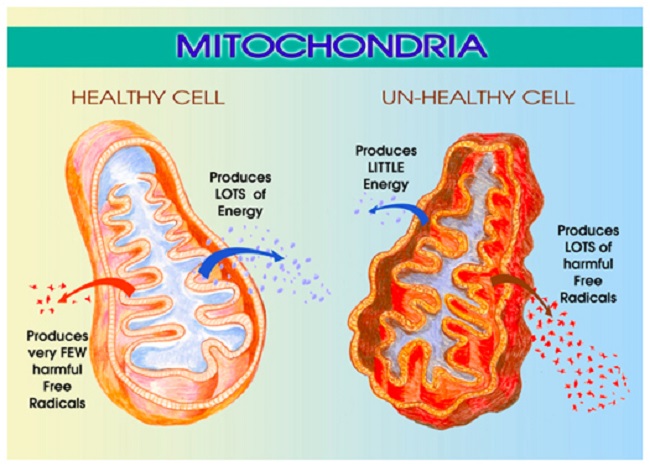I normally don’t speak for a larger population because we are all unique individuals; however, I think in this case I can speak for all women. Dread is the only emotion that is drudged up when you get the friendly reminder card in the mail that it’s time for your annual appointment. Stripping down and wearing a stiff hospital gown with your feet up in cold metal stirrups while a doctor sticks a cold, duck-lip looking contraption up your nether regions for a Papanicolaou (pap) test. I don’t think there is a single woman on earth who enjoys this necessary torture, but it is the primary way to detect diseases and/or conditions including cervical cancer.
That is until 2008, when Merck released a vaccine that is advertised to protect against the strands of the Human Papillomavirus (HPV) that cause cervical cancer and genital warts. The shot is being administered to young girls and boys (who can carry the disease, but do not suffer from any health conditions because of it). The shot is administered to girls ages 11-26 years-old and boys age 9-26 years old, but do the pros outweigh the cons? I’ve heard of doctors tell parents, I wouldn’t give this shot to my own child, how can I recommend it to my patients. And I’ve heard doctors say, it’s the greatest vaccine we have that actually protects against cancer.
Let’s look at whether or not prevention outweighs the serious side effects and risks.
HPV
Carolyn Vachani, RN, MSN, AOCN writes that, “The Human Papilloma Virus (HPV) is one of the most common sexually transmitted infections (STI) in the world. It is estimated that 5.5 million people worldwide are infected annually. Sexually active individuals have an 80 to 85% chance of being infected at some time in their life.” It’s not just a sexually transmitted infection; the virus invades the epithelial cells (type of skin cell) on other parts of the body including the oral mucosa, esophagus, larynx, trachea, and conjunctiva of the eye. Further more Vachani writes, “Researchers have identified 100 different strains of HPV, 40 of which can infect the anal and genital areas.”
On Merck’s Gardasil website it boasts, “GARDASIL is the only human papillomavirus (HPV) vaccine that helps protect against 4 types of HPV.” So, what about the other 96 strands, 36 of which infect the anal and genital areas?
Like HIV, there is no cure for HPV; but unlike HIV, the body can fight HPV and win 80% of the time. For the 20% whose body cannot fight off HPV there is a risk that cervical cancer can develop. If it is a strand that causes genital warts there are various methods to treat and get rid of the warts until the body is able to fight off the infection on its own.
Cervical Cancer
In spite of the high odds the body can fight off an HPV infection, cervical cancer is the second most common cancer in women worldwide. Forty years ago, cervical cancer was the leading cause of death of women in the US, but thanks to the availability of the pap test that has decreased 75% over the past 50 years. With annual pap tests, precancerous cells can be detected and removed from the cervix rather simply. According to the CDC, in 2008:
- 12,410 women in the United States were diagnosed with cervical cancer.
- 4,008 women in the United States died from cervical cancer.
Those numbers are low compared to developing countries. Out of the approximately 500,000 new cases of cervical cancer annually, 83% are in developing countries. The annual death rate of cervical cancer worldwide is approximately 273,000, of which developing countries account for 75% of the deaths.
There are no symptoms of cervical cancer and no way to detect it except a pap test, which isn’t available in most developing countries explaining the higher mortality rates. A vaccine that protects against the most common strands of the virus is better than nothing, right? Well, let’s take a closer look and see what the controversy is all about.
Gardasil
FDA approved Gardasil on June 8, 2006. As Chandler Marrs reported in Why Few Women Trust the FDA, the FDA doesn’t always have the best record in women’s health, making it difficult to believe everything they pass is safe or effective. The vaccine is a series of three shots taken over the course of a year. On the FDA website it states, “Given the large number of doses distributed, it is expected that, by chance alone, serious adverse events and some deaths will be reported in this large population during the time period following vaccinations.”
How many deaths and serious side effects are acceptable for the FDA? Apparently quite few; Natural Society reports, “Between May 2009 and September 2010 alone, Gardasil was linked to 3,589 harmful reactions and 16 deaths. Of the 3,589 adverse reactions, many were debilitating. Permanent disability was the result of 213 cases; 25 resulted in the diagnosis of Guillain-Barre Syndrome; and there were 789 other “serious” reports according to FDA documents.”
What does the FDA have to say? “Concerns have been raised about reports of deaths occurring in individuals after receiving Gardasil. As of December 31, 2008, 32 deaths had been reported to VAERS [Vaccine Adverse Event Reporting System]. There was not a common pattern to the deaths that would suggest they were caused by the vaccine.”
On the website Classaction.org, where you can get legal advice on class action law suits against the makers of Gardasil if you or your child has suffered from side effects, they state, “As of Feb. 14, 2011, the CDC has reported that there have been 51 reports of deaths among females who received the HPV vaccine. A total of 32 of these death reports have been confirmed, meaning that a doctor has reviewed the report and any associated records. There have been two reports of deaths among males who were injected with Gardasil.”
That is just in America where cervical cancer can be detected early with annual pap tests. The vaccine against HPV is given worldwide to girls and boys to prevent spreading of HPV. It is now marketed as prevention against anal cancer even though only 10% of women with HPV will develop cancer and cancer associated with HPV is only responsible for 1% of all cancer deaths.
Judicial Watch
In 2011, Judicial Watch, a conservative, non-partisan educational foundation that promotes transparency, accountability and integrity in government, politics and the law stepped in. They reported that they, “received new documents from the U.S. Food and Drug Administration (FDA) under the provisions of the Freedom of Information Act (FOIA), detailing reports of adverse reactions to the vaccination for human papillomavirus (HPV), Gardasil. The adverse reaction reports detail 26 new deaths reported between September 1, 2010 and September 15, 2011 as well as incidents of seizures, paralysis, blindness, pancreatitis, speech problems, short term memory loss and Guillain-Barré Syndrome. The documents come from the FDA’s Vaccine Adverse Event Reporting System (VAERS).”
The report also states, “Not only will Gardasil not cure pre-existing HPV, it can also make symptoms worse. Women who already have the virus without knowing it could suffer massive outbreaks of genital warts or abnormal precancerous lesions, both of which require extensive treatment.” The vaccine is suggested for women who test positive for HPV in order to prevent them from contracting the other strands. (The 25 page report can be viewed here.)
Conclusion
Merck’s website advertises “You/your son or daughter could be one less person affected by HPV disease.” It is important to research all the possible side effects and the rate of occurrence, as well as your/your daughter’s ability to have annual pap tests before making this decision. We are all exposed to numerous strands of the HPV virus. Of the 100 strands, 40 are contacted through sex or genital skin contact. Of those 40, Gardasil only protects against the 4 most common strands because adding more strands to the vaccine caused even more severe side effects. In 80% of the cases of genital HPV, the body fights off the infection. With pap tests, doctors can detect cervical cancer before it becomes deadly (as long as women are getting them done annually). As much as we all hate that annual appointment, it may be a better solution to stick our legs in the stirrups for an exam rather than risk the side effects of the Gardasil vaccine. You decide.
Next week, I will look at how Gardasil was approved by the FDA, how states are mandating it for school children, and how states are passing legislation to make it legal for health professionals to administer the shot to minors without parental consent.
Additional Resources
IARC Monographs on Human Papillomavirus Virus and Studies of Cancer in Humans
Is Gardasil mandated in your state? Read more here
How does a Pap Smear Test prevent cervical cancer? Read more here.
Participate in Research
Hormones MatterTM is conducting research on the side effects and adverse events associated with Gardasil and its counterpart Cervarix. If you or your daughter has had either HPV vaccine, please take this important survey. The Gardasil Cervarix HPV Vaccine Survey.







